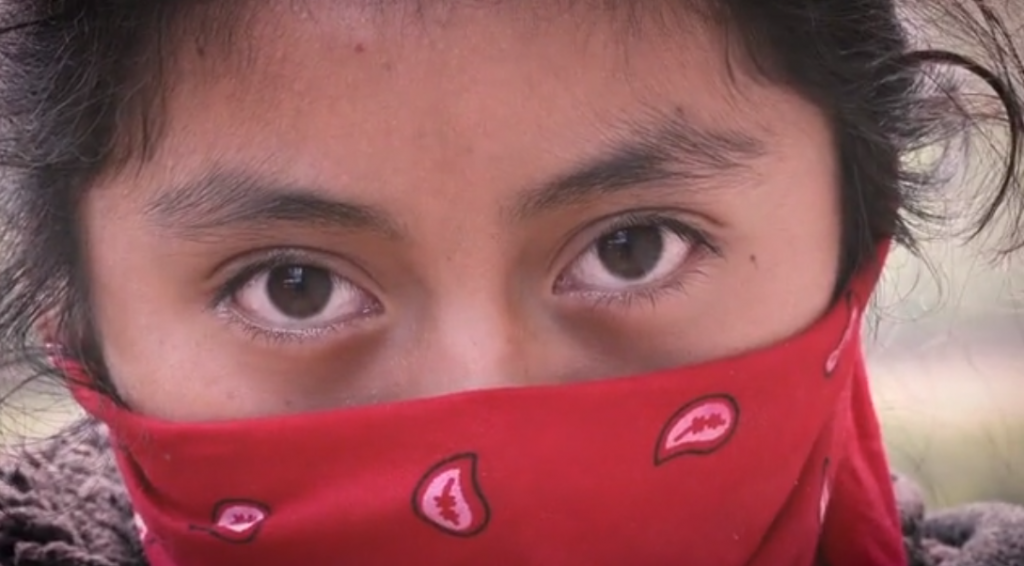by Raúl Zibechi
In the cities, when we go to demonstrations, one of the usual comments is about the number of people who attended. This attitude is part of our white, urban, traditional left-wing political culture, which has been adopted by almost all organizations. We believe that the more people who attend, the stronger the movement and the more likely it is that our demands will be met.
To some extent, that is the way things are. Since these are demands to the authorities, the more powerful the pressure, the greater the chances that our demands will be met. However, the question of numbers leaves out a couple of central questions.
The first is that attending a demonstration is not directly related to the behaviors in everyday life. Many people, when they return to their chores, continue to do exactly the same as before, waiting for their representatives to resolve their demands, returning to the role of spectators that they disrupted for a few hours.
The second is that this mode of collective action, in which all urban movements are involved, does not achieve profound transformations, since it continues to place at the center the state institutions which, in this political culture, are the subject of collective action.
It is clear that demonstrations are not enough to build autonomy, nor to recover territories from militarism and extractivism, which are destroying our countries and social relations from below. While demonstrations are legitimate and necessary, we need something more, particularly urban movements.
A few days ago I shared a few hours with the Zapatista support bases in Nuevo San Gregorio, and I would like to highlight some of the things I learned from them, and how I felt compelled by their tenacious resistance.
In the first place, there are very few families that remain in resistance. Only four. In the last few months two families have left. Their adversaries in the area are many more and they are armed. The fact that they are few people and families does not prevent them from persisting, nor from sustaining their autonomy or resistance. They do not seem to be overwhelmed by that fact.

Secondly, in the dialogue in which the Ajmaq Network and Frayba participated, they insisted on something very remarkable: Now we are more united, we feel stronger than when we were a lot more, they told us.
This point seems to me to be central. The strength of a struggle does not depend on how many people there are, but on each one of them having the necessary commitment and determination to persist under any condition, even when everything is stacked against us, when there is no prospect that our resistance can win in the short or medium term.
In the cities we observe that many people withdraw when their demands are not met, when repression increases or when they simply get tired. Some organizations that seem solid and powerful quickly grow weak when difficulties set in.
Thirdly, I believe that true power appears with setbacks. When we are attacked or isolated, demoralization often sets in. That is why I wondered, after the visit to the village, how they manage to keep going when everything is against them: the State, their national guards and armies, the para-state organizations, organized crime and even their friends and families, sometimes including former comrades in struggle.
Therein lies the point. Many movements feel solid when they are in the streets by the thousands. But here is a clear example of what is possible, even if there are only a few, in the most absolute solitude, when even a simple visit is harassed, and it is not known when people in solidarity will return. It is an example of dignity, and human and political fortitude.
Finally, the support bases of the EZLN in Nuevo San Gregorio showed us that resistance is not for a day or a year. It is a way of living life. It is not a struggle to obtain something material, or to obtain personal or collective advantages. Even less for immediate results. The struggle is to continue being peoples who are different from hegemonic capitalism. And for dignity.
It is a different political culture, in development, but not yet understood or embraced by the vast majority of organizations and individuals. It will take time for a change of such dimensions to take place, to lead us to embrace this other way of understanding the ways of organizing ourselves, of resisting and changing the world, of transforming ourselves.
These are just a few ideas about what we learn from the grassroots and specifically from Nuevo San Gregorio. We cannot learn, either individually or collectively, if we do not share, if we are not where the events happen, but above all if we do not have enough humility to recognize that we need to learn from those who resist from below.
This piece was originally published in La Jornada on September 23rd, 2022. https://www.jornada.com.mx/2022/09/23/opinion/015a1pol English translation by Schools for Chiapas.
